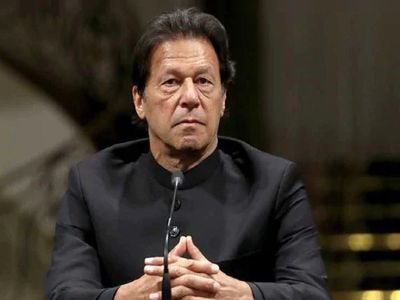UN rights chief slams Pakistan for failing to reign in violence on minorities
11:33AM Fri 28 Feb, 2020

Even as a debate is underway in India over religious freedom owing to the contentious citizenship law protests, the UN Human Rights chief has flagged violent attacks on minorities in neighbouring Pakistan.
Michelle Bachelet, the United Nations High Commissioner for Human Rights, on Thursday, said religious minorities in Pakistan continue to face violence and repeated attacks on their places of worship.
The UN High Commissioner also blamed Prime Minister Imran Khan government’s failure to amend the country’s notorious blasphemy law provisions which are often used to perpetrate violence against persons from minority communities.
While addressing the ongoing 43rd Session of the Human Rights Council in Geneva on human rights developments, Bachelet mentioned the case of Junaid Hafeez, a university lecturer in Pakistan, who was sentenced to death in December for blasphemy.
"Religious minorities in Pakistan continue to face violence, repeated attacks on their places of worship, and discrimination in law and practice," Bachelet said.
"The (Pakistan) Government, despite recommendations from international human rights mechanisms, has not amended or repealed blasphemy law provisions which have led to violence against religious minorities, as well as to arbitrary arrests and prosecution," the former Chilean president said in a statement on Pakistan's controversial blasphemy law.
"The death penalty remains mandatory for blasphemy, and in December, the Multan Court sentenced Junaid Hafeez to death on a blasphemy charge, in contravention of international human rights law," she added.
Junaid Hafeez case
Janai Hafeez, 33, a university lecturer who was arrested in March 2013, was sentenced to death for blasphemy. He was accused of posting derogatory comments about Prophet Muhammad on social media.
Hafeez’s case came under international scrutiny when his lawyer Rashid Rehman was shot dead in 2014 after agreeing to take up the case.
The accused had to be kept in solitary confinement after being repeatedly attacked by other prisoners in jail.
Hafeez completed his Master’s in the United States on a Fullbright Scholarship with a specialisation in American literature, photography and theatre. He took up the position of Bahauddin Zakariya University (BZU) in Multan where he was employed till his arrest.
Hafeez’s lawyer at the time had described the judgement as “most unfortunate”.
Source: Times Now












